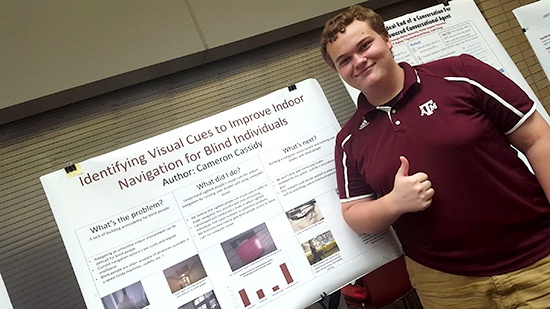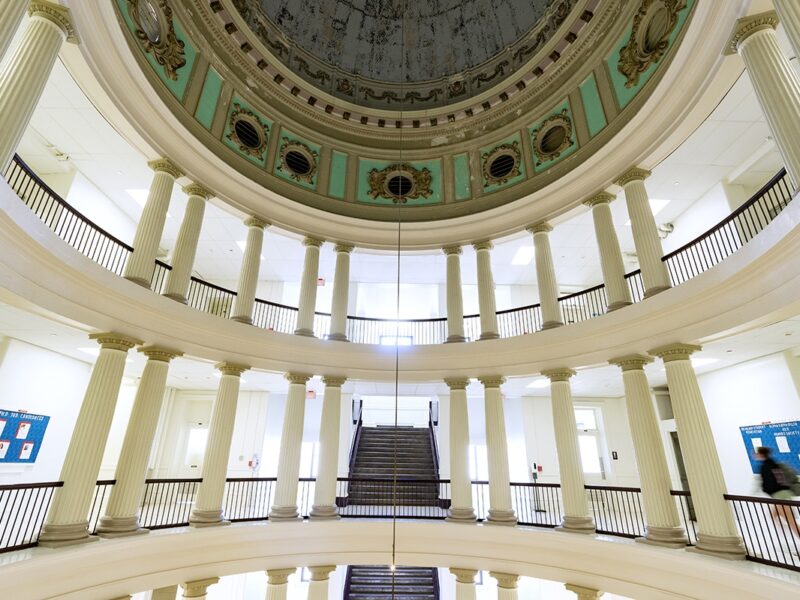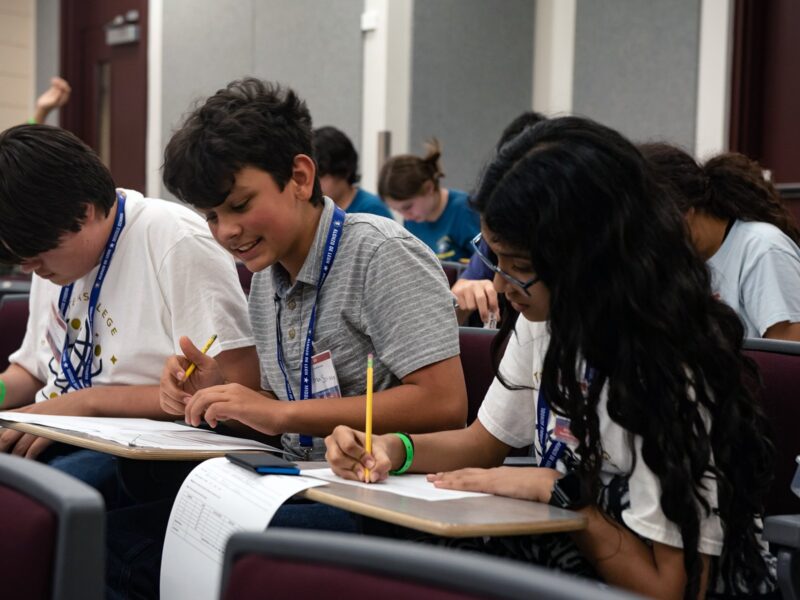Cameron Cassidy, a senior in the Department of Computer Science and Engineering at Texas A&M University, does not let his visual impairment slow him down as he pursues a degree in computer science.
He uses several adaptive technologies to help him in class, such as a camera to help see text on the board and a closed-circuit television, which is a digital magnifier that enlarges text on paper versus text at a distance.
Each new course provides a new set of challenges. So every semester he has to find new solutions to mediate the unique challenges that he faces. This has led to becoming a skilled problem solver.
“Each semester everything is new, you don’t know how the professor teaches, etc.,” Cassidy said. “In terms of problem-solving, you learn to quickly respond and find a solution for things to prevent falling behind in the course.”
Cassidy is working closely with Dr. J. Michael Moore, an instructional assistant professor in the department, on an undergraduate research project to create a new course.
“I actually met Dr. Moore at a conference in Seattle,” Cassidy said. “This conference was focused on creating courses regarding universal design and accessibility. Together, we came up with this idea of creating a one-hour class to be taught at Texas A&M as an elective for people who are majoring in university studies.”
Are Self-Driving Cars The Future Of Mobility For Disabled People?
The department is also dedicated to helping those with the need for accessibility to succeed in this field. Dr. Dilma Da Silva, department head, professor and holder of the Ford Motor Company Design Professorship II, is a member of the Alliance for Access to Computing Careers, or AccessComputing.
The alliance introduced Cassidy to Dr. Jeffery Bigham, an assistant professor in the Human Computer Interaction Institute at Carnegie Mellon University. Over the summer, Cassidy worked closely with Bigham on a project relating to Indoor Navigation Systems in Pittsburgh, funded by AccessComputing.
This grant program, which supports the innovation of adaptive technologies, is led by the Paul G. Allen School of Computer Science and Engineering, the Information School, and the Disabilities, Opportunities, Internetworking, and Technology Center at the University of Washington, and is supported by the National Science Foundation.
Upon graduation, Cassidy hopes to attend graduate school to study computer-human interaction. Though he has faced challenges, Cassidy has learned that through hard work and commitment, great things can be achieved.
###
This story by Rachel Rose originally appeared on the College of Engineering website.






